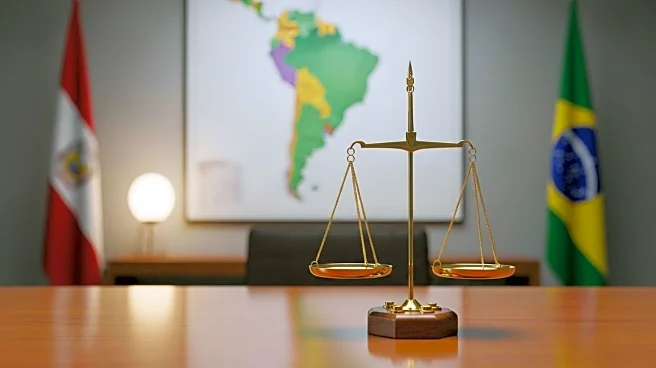What's Happening?
Former Latin American leaders are frequently encountering legal troubles, with Brazil's ex-President Jair Bolsonaro recently sentenced to over 27 years in prison for election-related offenses. This pattern is evident across the region, with numerous former presidents in countries like Peru, Colombia, and Ecuador facing investigations or convictions for corruption and other crimes. Uruguay stands out as an exception, with no former presidents charged or convicted, attributed to its political culture of respect for public resources. Experts suggest that widespread corruption and concentrated presidential power contribute to these legal issues, alongside the use of 'lawfare' to silence political opponents.
Why It's Important?
The prevalence of legal challenges among Latin American leaders highlights systemic issues such as corruption and weak institutions, which undermine public trust and democratic processes. These challenges can destabilize political systems and hinder economic development, affecting regional stability and international relations. Uruguay's unique position suggests that political culture and institutional integrity play crucial roles in preventing corruption. Understanding these dynamics is essential for policymakers and stakeholders aiming to strengthen governance and promote transparency in the region.
Beyond the Headlines
The phenomenon of 'lawfare'—using legal systems to target political adversaries—raises ethical concerns about the misuse of judicial processes. While oversight is necessary for accountability, the potential for politically motivated charges can erode trust in legal institutions. This underscores the need for balanced and fair judicial practices that protect democratic principles while ensuring justice. The situation also reflects broader challenges in global governance, where corruption and political manipulation can impede progress and development.










